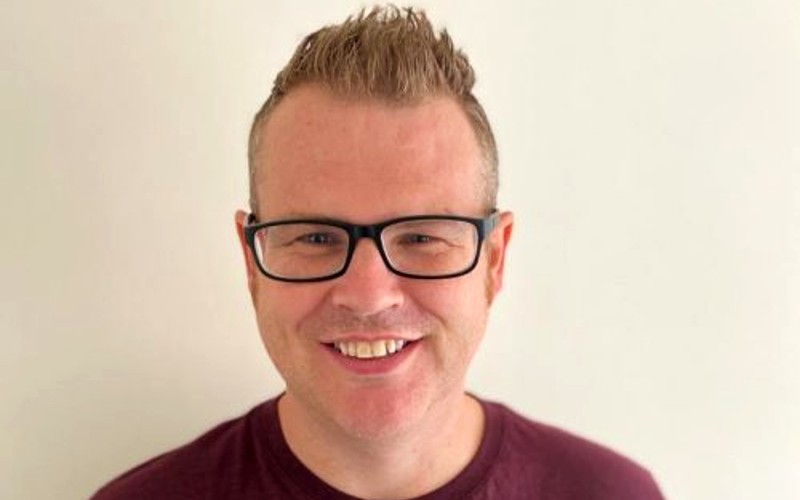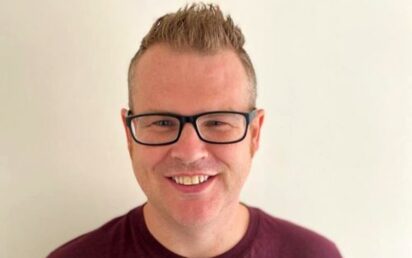A successful entrepreneur has spoken of the importance of being open and honest when running a business.
Paul Rhodes’s Green Gorilla Software celebrates its 10th anniversary this year and he is now growing WellGiving, a health platform to improve the mental and physical wellbeing of employees while raising money for charities.
He says the dark days of insolvency at his first business 22 Blue taught him a great deal about how to run a business.
“When I started my first business in 2009, I was still very much in the mind of a technician, and not a business owner,” the trained software engineer and occasional punk musician tells TechBlast. “One of my darkest moments was when it fell into insolvency. For a while I couldn’t see a future for myself as an entrepreneur.
“I also didn’t tell anyone, including my family, believing I could pull it back from the brink and save the business if I just worked harder. I felt like I was trading on quicksand.
“That experience taught me so much about what it takes to run a business: that an invoice is simply a promise to pay, and why you should never underestimate that ‘cash is king’ when it comes to business.
“The biggest lesson I learnt is to talk openly about the challenges you face. Being open, honest and transparent is one of the best things you can do.
“This first attempt at being an entrepreneur started great and the business grew very fast; but sadly folded due to cashflow problems in under three years, I was very, very naive. I applied these lessons to the launch of my next business.”
WellGiving launch
Green Gorilla specialises in agile software development while WellGiving, also based in the Midlands, was founded in 2019 to help connect remote and hybrid teams.
“I’ve been a huge advocate of remote working since 2015, so in creating WellGiving I wanted to offer a real solution to some of the issues affecting remote and hybrid workers,” he explains.
“The pivotal point for me was an ultimatum set by my own team: we had already tried numerous times to develop products with limited success. I was given 100 days to find my own passion project – one that could be a viable, commercial opportunity.
“The first thing I did was to find an ‘accountability partner’: Gabe, who lives in New York, was embarking on his own 100-day challenge and we met every week to hold ourselves accountable.
“It was a case of either finding an idea that had vision and passion, or simply giving up on the idea altogether and reverting to focus 100% on service work.
“Given that music was such a huge part of my life, I always thought it would be related to that, but my experience of running half marathons – with and without fundraising – made me explore the link between charity as a powerful motivator for fitness and health, and how it can turn ordinary people into superheroes.”
He adds: “I think the goal of any entrepreneur should be to essentially make themselves redundant in the day-to-day operations of the business, and instead focus on executing their vision.
“I’m now in this transitionary period and working on scaling my team so I can spend more time concentrating on the direction of the business.”
Find a mentor
Asked what further advice he would give to early-stage founders wanting to harness the power of technology to create a positive impact, he answers: “Building a network around yourself is absolutely crucial – seek out trusted mentors who will be able to advise you, and don’t be too precious about your idea.
“Identify and interact with your target audience, you should know your customer better than anyone else, and sell before you build to ensure you have validated the market before you launch.
“When you do execute your idea, be patient and don’t try and achieve perfection – strive to make 1% progress each day towards your vision.”

